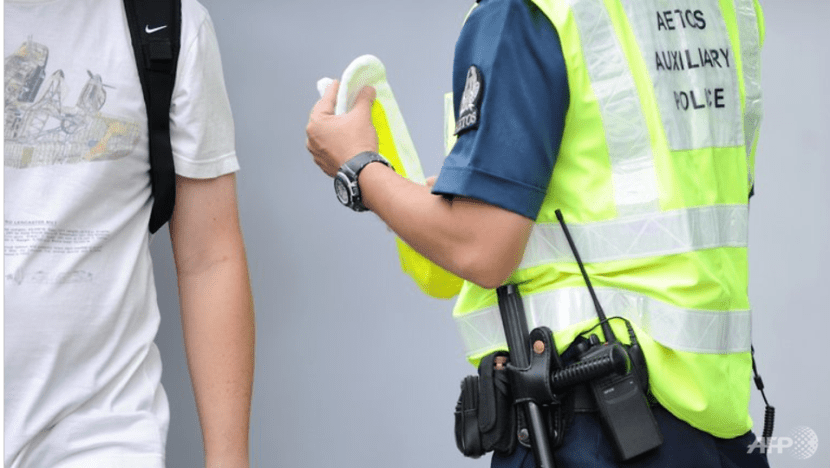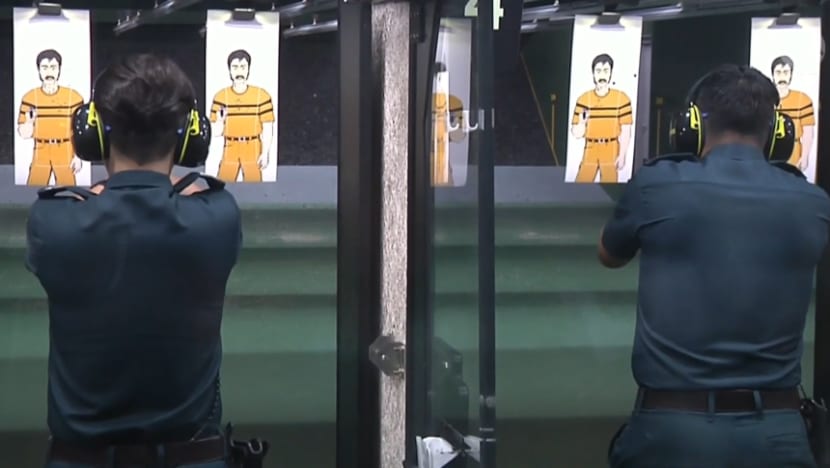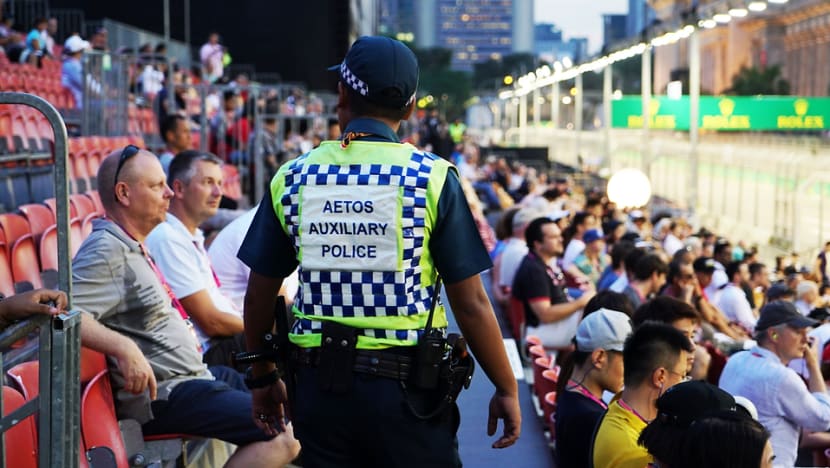Security firms welcome diverse pool for auxiliary police officers, but say hiring locals still a priority
The sector is facing a labour crunch amid a boom of mass participation events, as concerts and festivals return to full swing.


This audio is generated by an AI tool.
SINGAPORE: Local security firms say they will continue to attract and nurture a homegrown pool of auxiliary police officers (APOs), even as they welcome the government's plans to potentially tap on more diverse sources of manpower.
The sector is facing a labour crunch amid a boom of mass participation events, as concerts and festivals return to full swing after the COVID-19 pandemic.
“As Singapore's economy continues to grow, the demand for security services and solutions by both commercial and government sectors have increased,” said Ms Elaine Ong, AETOS’ director of strategic communications and marketing.
The security company has seen an increase of about 20 to 30 per cent in demand for its services since the pandemic lull.
However, manpower growth has not kept up with demand, and sustaining an adequate pool of officers has not been easy. This is due to a shrinking local workforce, requirements such as physical fitness, and the tough nature of the job.
“Security (roles) present unique challenges in attracting employees … long shifts, restrictive uniforms, harsh working environments and a negative perception of the career,” said Ms Ong.
MORE POTENTIAL MANPOWER SOURCES
To plug these gaps, renewed attempts to expand the list of places where such officers can be hired from are being studied.
As of November last year, Singaporeans made up about 68 per cent of the total number of auxiliary police officers here, with the remaining being Malaysian and Taiwanese.
Last week, Home and Law Affairs Minister K Shanmugam said the government has been considering expanding the jurisdictions where APOs can be recruited from, which potentially include China, India, the Philippines and Myanmar.
This comes as the number of such hires from Taiwan has significantly dropped since private security firms first started recruiting there in 2017 to help offset manpower shortage.
Security firms said Taiwanese APOs have been leaving due to the demanding nature of public-facing work, improved job opportunities in Taiwan and homesickness.

When it comes to the risk of letting non-Singaporeans carry firearms, Mr Shanmugam told Parliament that misuse by APOs is "extremely rare" and not more prevalent among non-Singaporeans.
He added that risks are managed through screening, training and supervision of the officers, and that firms are also more restrictive where non-Singaporean APOs are deployed.
The officers play an important role in keeping Singapore's law and order. They are deployed across the island from airport terminals to commercial banks, as well as at major national events such as the National Day Parade, the Singapore Formula One Grand Prix, and the recent Presidential Election.

HIRING LOCALS STILL PRIORITY
Security companies said that while expanding recruitment to other jurisdictions could help ease the labour strain, their immediate priority is attracting more Singaporeans to take up the job.
“We will continue to make efforts to attract and nurture our local talent – that's where our focus really lies,” said Ms Ong.
“We want to take steps to engage Singaporeans, and give them a good career that is really attractive and stable.”
The firm said it has put in place competitive remuneration packages and various bonuses and incentives, as well as initiating training and development programmes, in an effort to entice more Singaporeans to join its ranks.
An analyst said hiring locally could in turn translate to better training quality, and increase the momentum in the industrial transformation map for the security industry.
“The more we try to attract locals, the likelihood is that the quality of (APOs) that we (hire) from other countries will also go up because we need to put in more screening and training,” said Associate Professor Razwana Begum, head of the Public Safety and Security Programme at the Singapore University of Social Sciences (SUSS).
“There will also be greater focus on upscaling and upskilling, and in terms of how we project and market such roles. In general, we are likely to move towards having a profession that will be of a better quality and with greater oversight.”

















